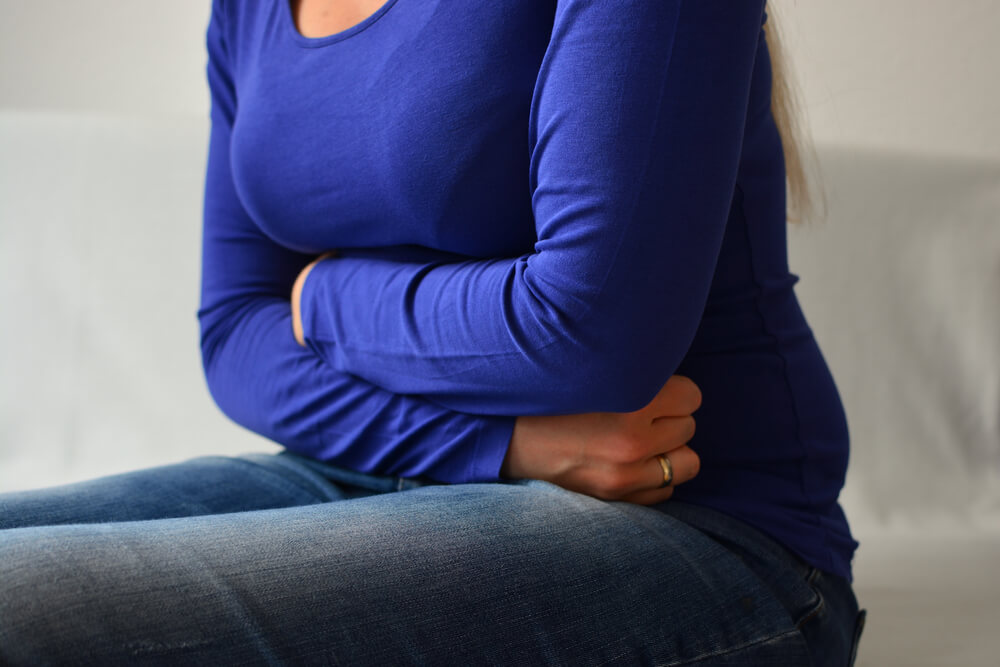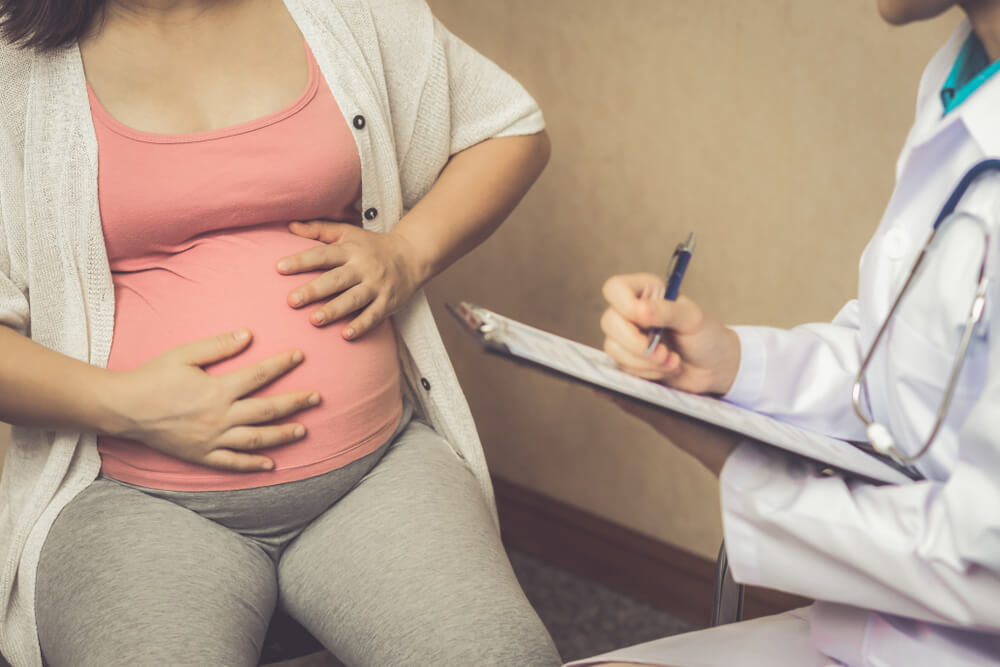Menopause is a natural biological process that marks the end of a woman’s reproductive years. It usually occurs between the ages of 45 and 55 and is defined as the absence of menstrual periods for 12 consecutive months. During menopause, the ovaries stop releasing eggs, and the levels of estrogen and progesterone, the hormones responsible for regulating the menstrual cycle, decrease significantly. As a result, women are no longer able to conceive naturally.
However, many women wonder whether there is a possibility for pregnancy during menopause, particularly if they have unprotected sex. While the chances of pregnancy in menopause are low, it is still possible in certain cases. In this article, we will explore the factors that influence a woman’s ability to conceive after menopause and the different options available for women who wish to become pregnant at this stage in life. If you have more questions, feel free to contact us at Trogolo Obstetrics and Gynecology in Jacksonville for more information.
Can You Get Pregnant in Menopause?
During menopause, the ovaries stop releasing eggs, and the levels of hormones such as estrogen and progesterone decrease significantly, making it nearly impossible to conceive naturally.
However, menopause is a gradual process, and the time leading up to menopause, known as perimenopause, can be a transitional period during which a woman may still ovulate and become pregnant. The likelihood of becoming pregnant during perimenopause is lower than during a woman’s fertile years, but it is still possible, particularly if she is not using contraception.
It is vital for women who believe they are in menopause or perimenopause but still have concerns about pregnancy to consult with their healthcare provider. There are also options available for women who wish to become pregnant after menopause, such as in vitro fertilization (IVF) using donor eggs, which can be a safe and effective method for achieving pregnancy in women who have gone through menopause. However, these options require careful consideration and discussion with a healthcare provider to ensure the best possible outcome for both the mother and child.

Menopause vs. Perimenopause
Menopause and perimenopause are two distinct but related stages in a woman’s reproductive life. Menopause is defined as the permanent cessation of menstruation and is typically confirmed after 12 consecutive months without a period. Perimenopause, on the other hand, is the transitional period leading up to menopause and can last for several years. During perimenopause, a woman’s body undergoes various hormonal changes, and menstrual cycles become irregular. Symptoms of perimenopause can include hot flashes, night sweats, mood changes, and vaginal dryness.
The main difference between menopause and perimenopause is that menopause marks the end of a woman’s reproductive years, whereas perimenopause is a transitional stage leading up to menopause. Women can still become pregnant during perimenopause, but their chances decrease as they age and their ovarian reserve declines. It’s important to note that while menopause is a natural biological process, perimenopause can be a challenging time for many women due to hormonal fluctuations and associated symptoms. Understanding the differences between these two stages can help women better manage their health and well-being during this time of transition.
In Vitro Fertilization During Menopause
In vitro fertilization (IVF) is a type of assisted reproductive technology (ART) that involves retrieving eggs from a woman’s ovaries, fertilizing them with sperm in a laboratory, and transferring the resulting embryos to the woman’s uterus. While IVF is typically used to help couples overcome fertility problems, it can also be used to assist women who have entered menopause pregnancy.
Donor eggs are usually obtained from younger women who have undergone ovarian stimulation to produce multiple eggs. The eggs are then retrieved and fertilized with sperm in the laboratory using IVF. The resulting embryos are then transferred to the uterus of the menopausal woman, who is given hormones to prepare the uterus for implantation.
IVF using donor eggs has a higher success rate than other types of fertility treatments for menopause and pregnancy because the quality of the eggs is typically higher than that of a woman’s own eggs at this stage of life. However, the procedure can be expensive and emotionally challenging, and it may not be suitable for everyone.
It’s important to note that some medical risks are associated with menopause and pregnancy at an older age, including an increased risk of complications such as high blood pressure, gestational diabetes, and premature birth. Therefore, women considering IVF menopause pregnancy should discuss the risks and benefits with their doctor before making a decision. That is why you should contact menopause evaluation and treatment in Jacksonville, Florida, for the best evaluation and care there is.
Potential Health Risks Later in Life
Pregnancy is a beautiful and miraculous experience for women, but as a woman ages, the risks associated with pregnancy increase. Advancements in medicine and technology have made it possible for women to have children well into their 40s and even 50s, but there are several health risks associated with pregnancy later in life.
- Gestational Diabetes:
Women over the age of 35 are more likely to develop gestational diabetes during pregnancy. This condition occurs when the body is unable to produce enough insulin to regulate blood sugar levels. It can increase the risk of complications during pregnancy, such as premature birth, preeclampsia, and cesarean delivery.
- Preeclampsia:
Preeclampsia is a potentially life-threatening condition that occurs during pregnancy, characterized by high blood pressure and damage to organs such as the liver and kidneys. Women who become pregnant after the age of 35 have an increased risk of developing preeclampsia.
- Chromosomal Abnormalities:
As a woman ages, her eggs also age, and the risk of chromosomal abnormalities in the fetus increases. Down syndrome is the most common chromosomal abnormality, and the risk increases significantly after the age of 35.
- Preterm Birth:
Women over the age of 35 have a higher risk of giving birth prematurely, which can lead to complications such as respiratory distress syndrome, feeding problems, and infections in the newborn.

- Stillbirth:
Women who become pregnant after the age of 35 are at an increased risk of stillbirth, which is the loss of a fetus after 20 weeks of pregnancy.
- C-section delivery:
Women over the age of 35 are more likely to have a cesarean delivery. This may be due to the increased risk of complications during pregnancy, such as preeclampsia, gestational diabetes, and placenta previa.
- Cardiovascular Disease:
Pregnancy puts stress on the cardiovascular system, and women who become pregnant later in life are at an increased risk of developing cardiovascular disease. This risk is further increased if the woman has underlying health conditions such as high blood pressure, diabetes, or obesity.
In conclusion, pregnancies later in life carry a higher risk of complications for both the mother and the baby. Women who are considering having a child later in life should consult with their healthcare provider to understand the risks and make an informed decision.
Call Us
If you still have questions about menopause and pregnancy and can get pregnant in menopause, be sure to contact Trogolo Obstetrics and Gynecology. We will be happy to help and assist at any time.


